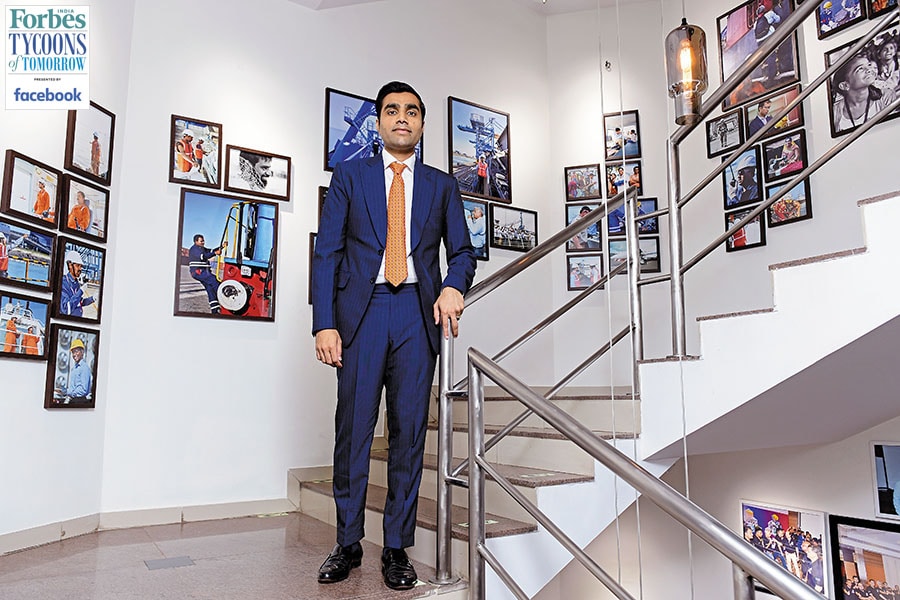Karan Adani: Harbouring higher ambitions
The CEO of Adani Ports and Special Economic Zone, is looking beyond India's coastlines


 APSEZ CEO, Karan Adani is exploring opportunities across South Asia
APSEZ CEO, Karan Adani is exploring opportunities across South Asia
Image: Mayur D Bhatt for Forbes India
As CEO of Adani Ports and Special Economic Zone (APSEZ), a company with 10 ports along India’s 6,700-km coastline, Karan Adani oversees nearly 15 percent of the cargo that passes through the country’s ports. Twelve other major ports in India, owned by the government, handle another 58 percent, while 200 other minor ports handle the remaining.
“Adani Ports is today the largest port operator in India,” Adani says. “From being a single port operator in 2009, we have come a long way. Today, we cover 80 percent of India’s hinterlands, and the focus is to be a pan-India port operator, providing end-to-end logistics.”
Click here for the full Tycoons of Tomorrow list
For long, India’s government-controlled ports held a monopoly over trade, and the Adani Group is among those that managed to break that stranglehold with its rampant capacity addition, technology and professional practices. Adani, a management graduate from Purdue University in the US, took over as CEO of APSEZ in 2016, and has since been trying to transform the way the company functions.
The company, founded by his father Gautam Adani in 1998, has come a long way in the past two decades, after starting out with just two berths at its Mundra port in Gujarat. The Adani Group, too, has grown exponentially with interests across ports, power, coal and oil, clocking annual revenues in excess of $11 billion in 2017.
The 31-year-old is now laying the groundwork for the next phase of growth at APSEZ. “I have been focusing on a few things personally,” Adani says. “That includes the way we do business, how we become more transparent, and how we make the business more sustainable. I have also been building the right team for the business.”
With a market capitalisation of over `78,000 crore, APSEZ is India’s biggest port company by market capitalisation, and is currently in the midst of building one of India’s largest ports in Vizhinjam in Kerala. APSEZ ports have a combined capacity of 378 million metric tonnes (MMT), with its Mundra facility alone contributing 242 MMT. The plan is to get to 500 MMT capacity across ports by 2025. Last year, the company’s revenues stood at `11,323 crore with profits to the tune of `3,683 crore. In 2014, the company also bought Dhamra Port in Odisha from the Tata Group.
Click here for the full Tycoons of Tomorrow list
“If you want to see how APSEZ has performed, look at some of the others who started around the same time as they did,” says Vishwas Udgirkar, a partner with Deloitte who leads their government utilities and infrastructure development practice in India. “Despite being a family business, they don’t shy away from professional management and they encourage that. The current leadership has also been bringing in new practices, with a focus on newer technology, such as artificial intelligence.”
Now, the Ahmedabad-based company is planning to up its game, and foray further across South Asia. “We want to eventually emerge as a big regional player,” says Adani. “There are opportunities in Bangladesh, Africa, the smaller countries in the Indian Ocean and the Middle East.”
With its phenomenal track record of building capacity, that expansion certainly won’t be a tough ask.
First Published: Sep 21, 2018, 16:41
Subscribe Now